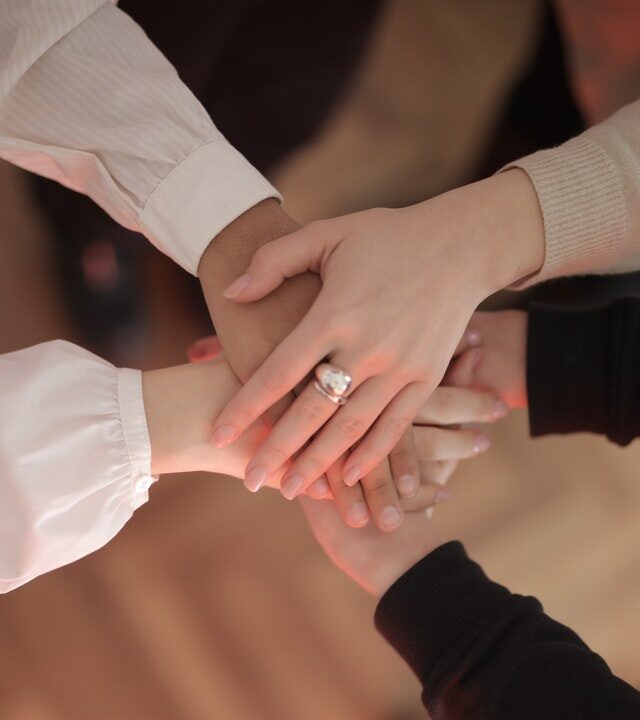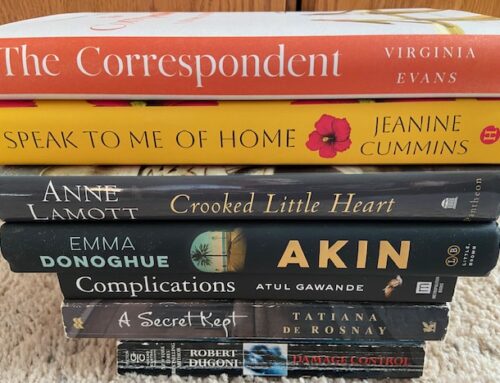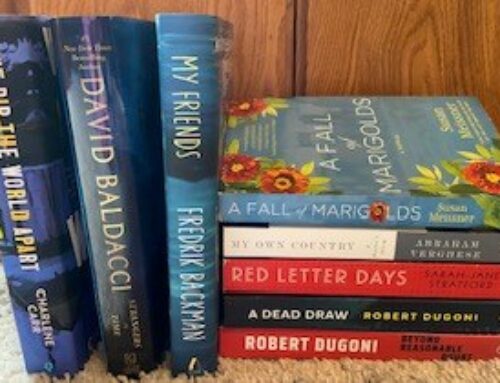Reading the novel The Female Persuasion by Meg Wolitzer really sent me down a path of thinking about women, work, mentors, and how we grow each other. Didn’t hurt that it flooded me with memories of my early feminism in the 70’s.
This is nothing against men as mentors; many are wonderful mentors to younger professionals. However, for women (who still lag in pay, presence, and opportunities), there is a special need for women to be role models and share their wisdom and networks with other women.
Mentoring takes many forms, isn’t exclusive to the working world, and isn’t always a matter of age. This blog is a classic example, for all the things you don’t see behind the scenes: a group of women, various ages, pouring individual talents into it and encouraging one another. And while I’ve always been a writer, it is my younger partners who have taught me how to use this space and to be brave in it. And h/t to Brene Brown for her lessons on vulnerability and courage.
It’s interesting to look back on the ways women have influenced my direction over the years.
Photo: Andrea Piacquadio, pexels

High school teachers Mrs. Williams and Mrs. Okerlind took the time and effort to nurture my love of literature and writing. I’m guessing many of us have had teachers who made a significant difference in our paths. Tip: let them know before it’s too late.
My work world found me surrounded by women – a hospital, in which most employees were female, while most of the administrators were male. My (male) boss was a wonderful manager, and I am ever grateful for him giving me that crucial first job out of college. However, he alone could not save me from the good-old-boyism that existed in those halls. It was primarily the female executive secretaries who taught me how to handle that. H/T to Frannee and Lynn.
Sadly, all these years later, my own daughter experienced the wandering eyes and inappropriate comments of males in her first professional workplace. Honestly, will they ever grow up and realize NO ONE wants that kind of attention? But young women still must learn to deal with it. And may we all raise sons who know better.
It was a female radio newscaster who decided, spur of the moment, that I needed to mic up for a live interview the first time; afterward, she told me that’s the only way to learn to do it. Laurie set me up for success and calmed my nerves about speaking on air.
Later, it was the new female vice-president who became my boss, mentor, and ultimately, my friend. Pat stood out as a young, single woman in an executive position, and when the afore-mentioned male boss moved on, she promoted me to my first directorship at the age of 25. Like many young professionals, I had to work through a touch of imposter syndrome, as well as something that sounds ridiculous today – learning to call my new peers by their first names instead of Mr./Mrs. (I also took note that the male administrators were routinely called Mr., while Pat was known as Pat, but that’s another story.)
Pat gave me a shot when many would have thought I was too young to handle it, but what a great experience it turned out to be – for another 26 years as the hospital public relations and marketing director. My clinical colleagues, mostly women older than I, were supportive (and welcomed me to the menopause club well into my tenure). I learned to be a manager of others and of big projects, and I learned to speak up. Pat moved on 5 years later, but she gave me the platform to stand on and the confidence to advocate for myself, my team, and my community. The first time I had to take a stand opposite our male CEO, I knew she had my back; that was not the case with the male VP who replaced her, though the CEO had a tendency to sidestep him when he wanted my honest opinion.
A few years later, Carole came as vice-president over a lot of previously male-dominated departments and was clearly a woman who could hold her own. Her decisive competence and willingness to listen earned my respect. Even when we disagreed, she consistently considered the other side. She deferred on issues in my lane, further building my confidence. Also, she was a working mom when I was in my early years of juggling family and work, and that model was important to me. Years later, I had a chance to work with Carole on a political campaign, and we continue to be friends.
When Terri, a younger woman than I, took the leadership of a new outpatient physical therapy program, she taught me what was truly important in marketing her program, and she modelled terrific team leadership. She coached me through my own post-surgical physical therapy and connected the dots between my work and her patients in a way I hadn’t seen before. Terri made me a better servant leader over the years we worked together.
When I left my full-time career path, Sharon helped me find direction and purpose again, linking words, stories, and philanthropy to the hospice mission. She believed in me, trusted me, and introduced me to a group of women who have enriched my life in many ways.
Professionally, other women in the public relations field dealt with similar issues and served as peer mentors. We supported one another, cheered one another, and offered advice when asked. Some of us built close friendships that last still. (Later known as “book club,” which sounds better than “women who drink wine together every month.”) H/T to Frances, Vanessa, Tuppy, and Betty.
However, over the years, I also saw women undercut other women, to the detriment of us all. It’s never right, and it sure as hell didn’t feel good when it happened to me. Sometimes mentors let us down, often from a place of their own fear or insecurity. One woman I had counted as a mentor threw me under the proverbial bus in a totally unexpected way; recovering from the emotional gut-punch was tough. Not all women are good leaders or good mentors. It was a woman who didn’t tolerate different perspectives and who told me she liked people to be scared for their jobs.
In my career, I employed both women and men on my team, and I hope I opened them to new growth and the professional opportunities they later found. Likewise, the younger professionals with whom I worked taught me a great deal, particularly in the use of technology and digital tools, but also about work/life balance. While my generation tried to “do it all,” younger employees placed a high priority on family time and boundaries.
Nearly every month, I have lunch with a fabulous small group of women, most of whom are at least a dozen years older. These are women who have been political activists, and one who held a local office for many years, who paved the way for women like me. They stay on top of the latest challenges, advocate for women, and help mobilize others to run and vote. These women continue to inspire me.
By and large, we seek the company of those who have a positive impact on us, and it’s rewarding to see more women embrace the mentor role, in a variety of ways. It was the women with whom I intentionally surrounded myself who helped me grow from it.
Do you seek out women mentors or find them helpful? Do other women come alongside you with encouragement or suggestions?
Today, I write for a few clients to keep my brain occupied, and I write for myself. I collaborate with my friend Amy who teaches me technology skills, as well as life knowledge, beyond my experience. Silvia teaches me to dream big, focus on my purpose, and laugh a lot. I maintain ties in my professional association and with the younger p.r. people in my community who keep me feeling young. A couple of them call me a mentor, which is both humbling and gratifying. I no longer face the daily stressors they do, and I’m happy to share my time, thoughts, lived experiences, and encouragement with them. I always hope for my daughter to have other women to nurture her growth.
I am also inspired by young women who are developing their creative wings and sharing artistic gifts with the world, whether in music, words, or other endeavors. I’m energized by the determination of women to make things better. My life has been enriched by women of all ages with whom I’ve been blessed to associate and call friends.
Sometimes you don’t see the true value of what you’ve gained until well after the fact. Standing firm and true to my beliefs when it was uncomfortable helped harden my professional resolve and credibility. It took a village, as they say, to support me in doing so.





Leave A Comment
You must be logged in to post a comment.